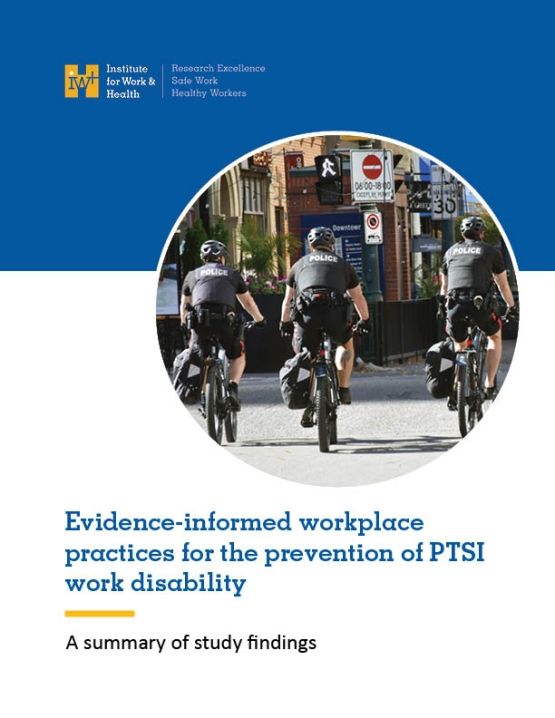First responders commonly experience occupational injuries, particularly post-traumatic stress injuries (PTSIs), which encompass symptoms of anxiety-, mood- or trauma-related disorders.
PTSI can negatively affect the lives of first responders, including reducing work performance; increasing absence at work; raising the likelihood of burnout, sleep difficulties, poorer relationships with others, feelings of hopelessness, self-harm and suicidal behaviors; and leading to higher risks of disability and early mortality.
This summary is based on an Institute for Work & Health study that focused on organizational policies and practices in first responder organizations that can help prevent PTSI work disability.
